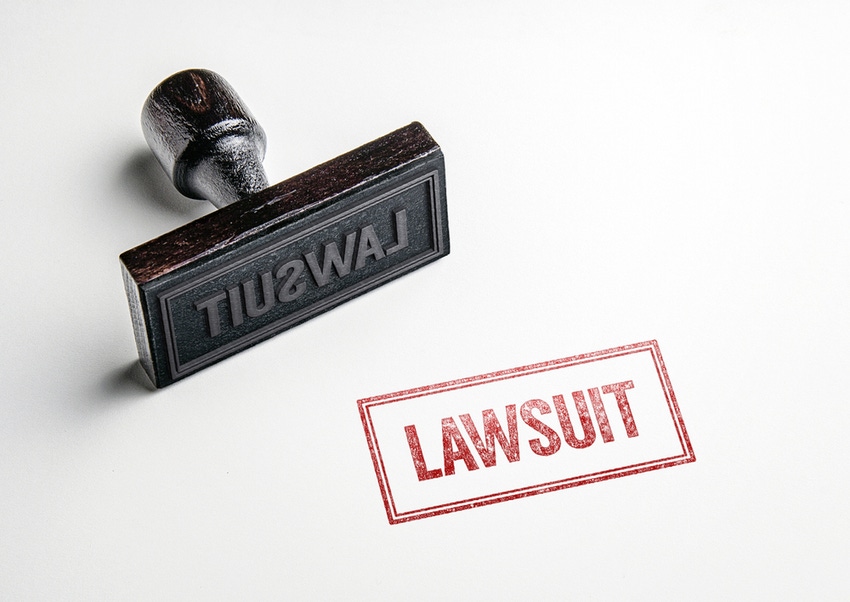Microsoft president Brad Smith is confident that Microsoft and Activision will prevail in court.
December 9, 2022

The Microsoft-Activision Blizzard deal has suffered a setback, with the Federal Trade Commission’s lawsuit seeking to block it. The FTC’s complaint, filed on Thursday, promises to delay the proposed acquisition, but Microsoft is confident it will prevail.
At the beginning of this year, the two companies agreed for Microsoft to acquire Activision Blizzard for $69 billion. If the deal is completed, it would be the largest-ever acquisition in the gaming industry. But the combined companies would still only be the third largest player behind Tencent and Sony, Microsoft has contended.

Microsoft’s Brad Smith
Brad Smith, Microsoft’s president, said the company would prevail over the FTC in court.
“We continue to believe that our deal to acquire Activision Blizzard will expand competition and create more opportunities for gamers and game developers, Smith said on Twitter. “We have been committed since Day One to addressing competition concerns, including by offering earlier this week proposed concessions to the FTC. While we believe in giving peace a chance, we have complete confidence in our case and welcome the opportunity to present it in court.”
History of Vertical Integration
The FTC’s complaint disputes Smith’s claim of addressing competitive concerns. It contends Microsoft’s history of “vertical integration” would stifle competition.
“The Proposed Acquisition would continue Microsoft’s pattern of taking control of valuable gaming content,” according to the complaint. “With control of Activision’s content, Microsoft would have the ability and increased incentive to withhold or degrade Activision’s content in ways that substantially lessen competition — including competition on product quality, price, and innovation.”
Reduced competition would harm consumers in multiple markets, the complaint maintained. Specifically, the complaint asserts that Microsoft could use its control of Activision’s titles to its advantage. Consequently, according to the complaint, the combined company’s ability to withhold content from rivals would harm them, the complaint contents.
Microsoft Refutes Gaming Dominance Claim
Anticipating the FTC was preparing to file the lawsuit Smith, earlier this week, argued his case. “Microsoft faces huge challenges in the gaming industry,” Smith wrote in a Wall Street Journal Op-ed column published on Monday. “Our Xbox remains in third place in console gaming, stuck behind Sony’s dominant PlayStation and the Nintendo Switch.”
Further, Smith argued that Microsoft doesn’t have a significant mobile gaming presence. “That segment of gaming generates the most revenue and is the fastest-growing, but a significant portion of the revenue goes to Google and Apple through their app-store fees,” he wrote.
Microsoft also recently offered 10-year deals to provide its popular Call of Duty title to Sony and Nintendo.
But in the complaint, the FTC warns that Microsoft shouldn’t be trusted, despite agreeing to enforcement of its concessions. It pointed to Microsoft’s March 2021 acquisition of ZeniMax Media, publisher of Bethesda. The complaint noted that Microsoft had assured the European Commission (EC) that it had no incentive to hold back ZeniMax titles from rival consoles.
But according to the complaint, “shortly after the EC cleared the transaction, Microsoft made public its decision to make several of the newly acquired ZeniMax titles, including Starfield, Redfall, and Elder Scrolls VI, Microsoft exclusives.”
A Tough Case for the FTC

UC Berkeley’s Steven Weber
Nevertheless, experts believe the FTC might have an uphill battle in winning its case against Microsoft. Even if it doesn’t win the case, the FTC could be seeking to discourage other large deals, according to Steve Weber, a professor at the University of California Berkley School of Information.
“The FTC has been very explicit that they’re looking for cases right now to prosecute,” Weber told Channel Futures. “I think [FCC commissioner] Lina Khan feels she must do something to instantiate her view that competition policy as a whole needs a big shake-up. It doesn’t matter if she wins or loses, but rather that she drives the debate in a different direction.”
Experts also believe the FTC is hoping its lawsuit will also prompt the EC to challenge the deal.
“This is a massive $200 billion in revenue market which even consolidated, Microsoft of Activision Blizzard would only be the third largest player behind Tencent,” Raymond James equity research analyst Andrew Marok told CNBC. “There’s so many remedies or potential concessions that Microsoft or Activision could make to get this deal over the line.”
Marok believes regulators will ultimately approve the deal. Still, the FTC’s complaint will result in “a more drawn-out process than Microsoft or Activision had expected at the outset of the deal.”
Weber added Smith has made a strong argument why it would not be in Microsoft’s interest to squeeze rivals from Activision content such as Call of Duty. But Weber noted that Kahn’s claim goes beyond the current gaming market.
“What Lina Khan is focused on is not today’s gaming industry, but the future delivery of games and content, and in particular, the metaverse, in which Microsoft might use this to try to boost demand and data for their Azure cloud service,” Weber said. “That’s a bigger stretch for traditional competition policy because you’re talking about the future evolution of a set of industries than competitive effects on customers right now. But that’s where she wants to go.”
Want to contact the author directly about this story? Have ideas for a follow-up article? Email Jeffrey Schwartz or connect with him on LinkedIn. |
About the Author(s)
You May Also Like


